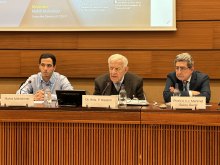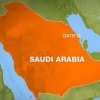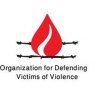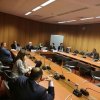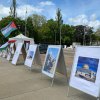
Odvv's Side event on HRC55:The situation of international humanitarian law in Gaza is...
Odvv's Side event on HRC55:The situation of...
Former Special Rapporteur on the situation of human rights in the Occupied Palestinian Territories on the side event of the Organization for Defending Victims of Violence
The situation of international humanitarian law in Gaza is very dire
The side event of the Organization for Defending Victims of Violence on the issue of the human rights situation in the Occupied Palestinian Territories was held today, 20th of March, equivalent to the first Farvardin of 1403 at the European headquarters of the United Nations in Geneva.
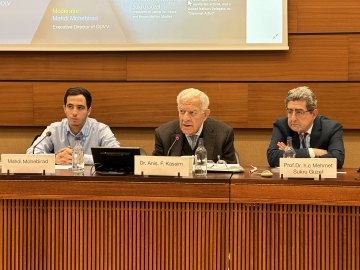
At the beginning of this meeting, Mehdi Mohebi Rad, the secretary of the meeting, thanked and welcomed the participants while enumerating the violations of human rights and humanitarian law in Gaza and pointed to international capacities, including the recent case of South Africa in the International Court of Justice.
The first speaker of this meeting was Dr. Anis Qassem, an international jurist and a member of the board of directors of the non-governmental organization "Rights for Palestine", who discussed the legal aspects of the human rights situation in Gaza and explained the Convention on the Prevention and Punishment of Genocide.
He emphasized that ICJ has issued its provisional measures order according to the reports received from UNRWA, the World Health Organization and the examination of the statements of the Israeli authorities like calling Palestinians human animals, and their emphasis on blocking access to all humanitarian items such as water and food in Gaza.
Dr. Anis Qasim stated: in this provisional measures order, the Court has set certain obligations on Israel, which unfortunately it has not complied with. For example, one of them is that Israel "shall" stop its actions and report to the Court in this regard. Israel has made a confidential report to the Court but the killing of people continues and the crisis has reached an alarming level.
He added: Excessive use of force is observed in this area and there is limited access to humanitarian items. He pointed out that now less than 100 trucks enter Gaza every day. Children die from hunger and dehydration. Forced starvation was from other topics raised with emphasis on the words of the Special Rapporteur on the right to food.
Dr. Qasim stated: Children's suffering is like torture. People are all starving. Israel has used several methods of genocide in this region. Forcible transfer of people under Article 2(C) of the Genocide Convention is prohibited and is considered a war crime. The Fourth Geneva Convention also considers the forcible transfer of people illegal.
He emphasized: Israel has ignored the reports of various organizations about Gaza, and governments are obliged to force Israel to comply with its obligations under the Genocide Convention. In addition, imposing sanctions against Israel in various aspects such as sports, art, and business due to gross violations of human rights can be included in the agenda of the governments, and in general, several measures are envisaged to isolate Israel.
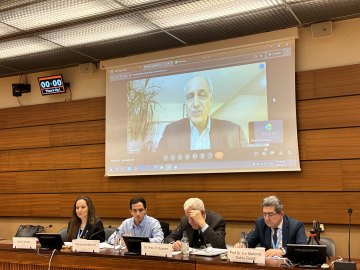
The second speaker of this meeting was Professor Michael Link, the former Special Rapporteur on the situation of human rights in Occupied Palestinian Territories and a professor of international law. In his speech, he explained the issue of genocide and Israel's international crimes in Gaza by highlighting the recent case of South Africa against Israel.
He stated: that according to the reports and data received by South Africa, it concluded that it is possible to institute this proceeding. This State has paid attention to the sufferings of about two million Gazan people. South Africa must prove that the killing and suffering of Palestinians have led to the destruction of a part of this group.
He added: Israel has raised a claim it was actually the victim of genocide as opposed to the cause of it.
By referring to the role of the International Court of Justice, he said: ICJ has paid attention to the words of the UN officials regarding the issue of genocide and statements related to the killing of people and making Gaza uninhabitable.
He clarified: now the situation of international humanitarian law in Gaza is very bad. The amount of humanitarian aid has decreased a lot, famine and starvation have occurred, and this is while starving people amounts to a war crime.
He stated that the provisional measures order has been favorable, but the absence of a request for a ceasefire in Gaza has allowed Israel to interpret the order in its favor. The Court issued six orders in its provisional measures order, which Israel was obliged to comply with.
Michael Link pointed out that England and America have stood with Israel and condemned South Africa.
He stated that, naturally, the Court does not have the authority to use a military to execute its sentence and the legitimacy of this provisional measures order depends on the will of States to follow it.
The third speaker of this meeting was Dr. Mehmet Shokro Gozel, a university professor and director of the Center for Peace and Reconciliation Studies, who discussed some legal issues of the war in Gaza and funding for the reconstruction of it.
In his words, he pointed out that it is possible to send financial aid for the reconstruction of Gaza through the interest of the Mediterranean Gas Resources, stating that Gaza is a land that belongs to the United Nations and like the people of Alaska, monthly salary can be paid to all the people of Gaza.
He said: the reason behind the Palestine problem is the wrong wording used in Security Council Resolution 242 adopted in 1967. Accordingly, Israel believes that the two-state solution is subject to its approval. Inserting wrong phrases in this Security Council resolution has allowed Israel to occupy Palestine.
He added: Resolution 181 of the Security Council proposed a two-state solution. Israel's membership in the United Nations is based on Resolution 181 and the State of Palestine is also recognized based on the same resolution.
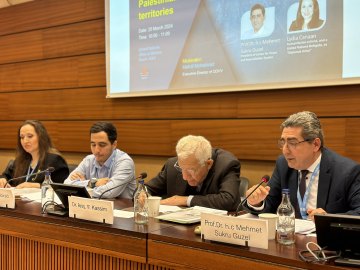
Dr. Shokro added: Security Council Resolution 242 adopted in 1967 considers the occupation of occupied lands before the 1967 war illegal and states that Israel has no right to rule over the occupied lands. Moreover, Israel cannot occupy the territory by force under international law and the Security Council cannot change the territory of States.
In the end, he said: that to end the problem of Palestine, the Security Council must end its wrong decisions. Palestine can become a member state of the United Nations.
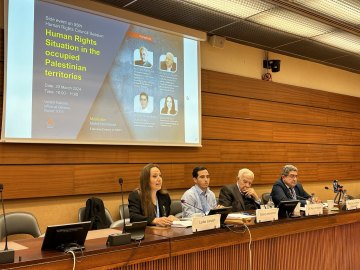
The last speaker of this meeting was Ms. Lydia Kanaan, a Lebanese human rights activist. Her very emotional speech was dedicated to the issue of apartheid and Israeli occupation.
At the beginning of her speech, she asked the audience to respect all the martyrs of Gaza by a minute of silence.
Kanaan said: The occupation of Palestine has continued for 75 years and the people of this land have been living under apartheid, discrimination and oppression of the Zionist regime for 75 years.
He added: the Zionist regime is a colonial regime whose activities have continued for 76 years in this region. Palestinians have the right to reclaim their stolen lands. The governments of the world should reserve this right for the Palestinian refugees and their children to return to the land of their ancestors, and receive compensation for their sufferings.
He emphasized that all Western States are complicit in this genocide and Palestinians have the right to self-determination.
He continued: In many countries, apartheid is finished and it shall be finished in Palestine as well, and Israel shall be held internationally responsible.
In the end, Kanaan said: this humanitarian crisis in Gaza should not be ignored and the systematic violation of Palestinian rights should not be undermined. As Nelson Mandela emphasized, “We all know very well that our freedom is not complete without the freedom of Palestine.”
 Reload
Reload